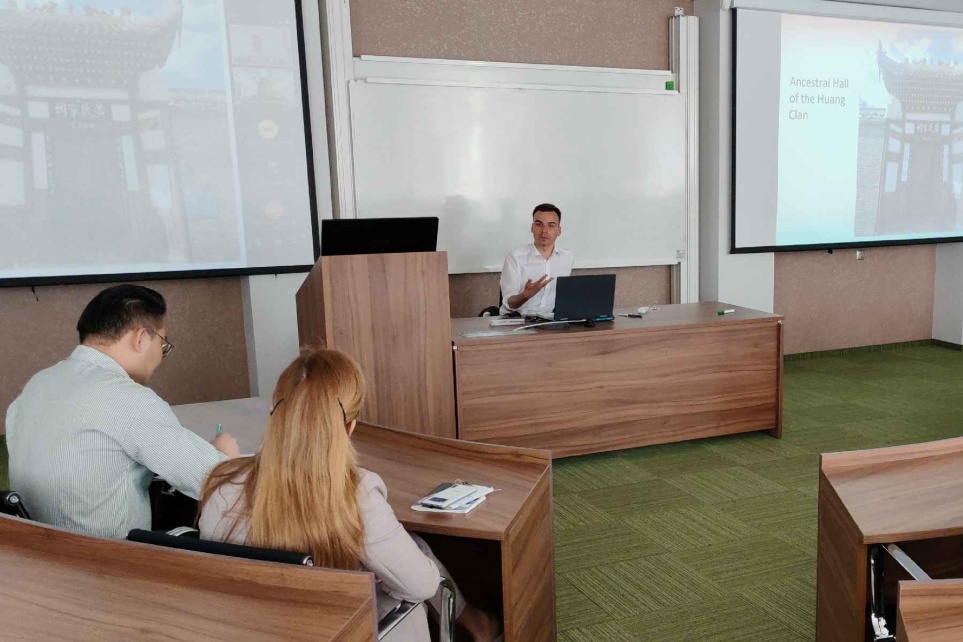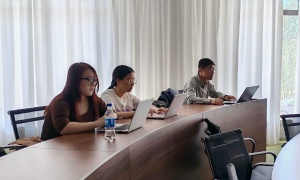
An expert told about ŌĆ£Rural anthropologyŌĆØ of China at Institute of Economics and Management in TSU
At 14th of May Sebastian Yemets gave an open lecture called ŌĆ£Rural anthropology: Economic Exchange, Global Processes, and a Better Family LifeŌĆØ at IEM in TSU.
Sebastian Yemets, Chinese culture and language teacher, told about the role of South Chinese villages in global economy.
ŌĆśSebastianŌĆÖs open lecture is an intellectual gift. Not only students from ŌĆ£International managementŌĆØ MasterŌĆÖs programme but also teachers and researchers from other TSU departments attended and joined lecture online. The lecture passed very quickly: Sebastian uncovered the topic, allowed students and colleagues to go deeper in the South Chinese social and cultural traditions. Students and colleagues were curious about the ŌĆ£field researchŌĆØ methodology, differences between China regions and even about how traditions transform during globalization. Many listeners said that ŌĆ£they discovered China from the new perspectiveŌĆØ. I express a great gratitude to Sebastian for a very interesting and gripping lecture, to students and attendees for their interest and involvement. This meeting showed that science unites, and anthropology is not just a subject but a living dialogue of culturesŌĆÖ, said Olga Nedospasova, head of ŌĆ£International managementŌĆØ MasterŌĆÖs programme.
The lecture was held within Irina PavlovaŌĆÖs (assistant professor of strategic management and marketing department) course on international marketing in Asia-Pacific region.
ŌĆśIn international marketing we pay much attention to studying international markets, international consumer segmentation and describing consumer behaviour in cross-cultural contexts. Anthropological methods might be useful as interdisciplinary methods for deeper understanding of a single region. Sebastian specifically told about lifestyle features, traditions and consumption patterns of a single Chinese province. We understand that it is important for a large country to take into account heterogeneity of spatial development. Russia and China are similar in this way when geographic, social and cultural factors shape patterns of consumption behaviourŌĆÖ, said Irina Pavlova.


